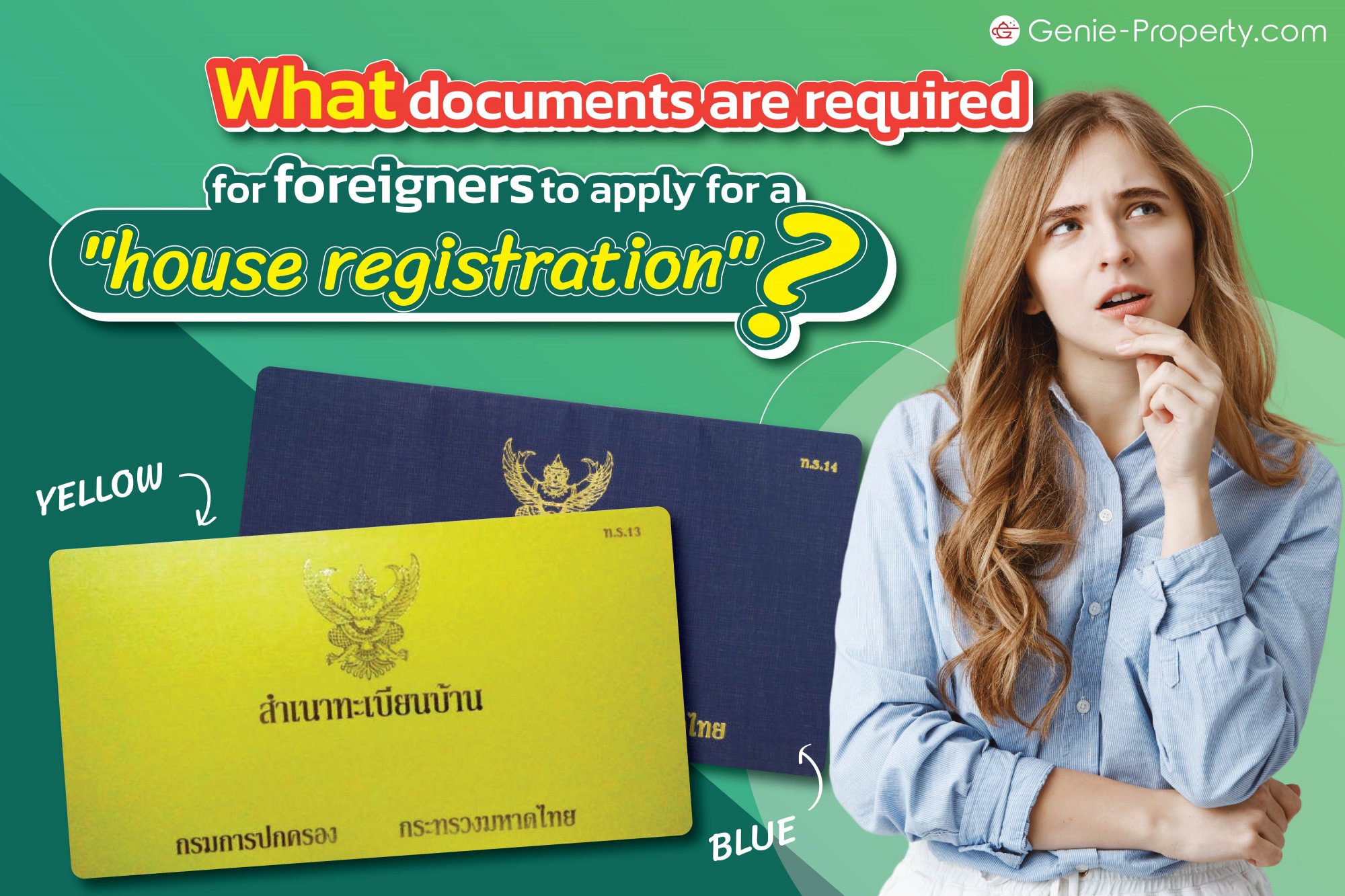What documents are required for foreigners to apply for a "house registration"?
Created Jun 15, 2023
Have you ever wondered how many types of household registration exist in Thailand? And if a foreigner buys a condominium or an apartment, can they have a household registration just like Thai citizens? Today, Genie is here to clarify these questions and dispel any doubts. So, let's get ready and find out together!
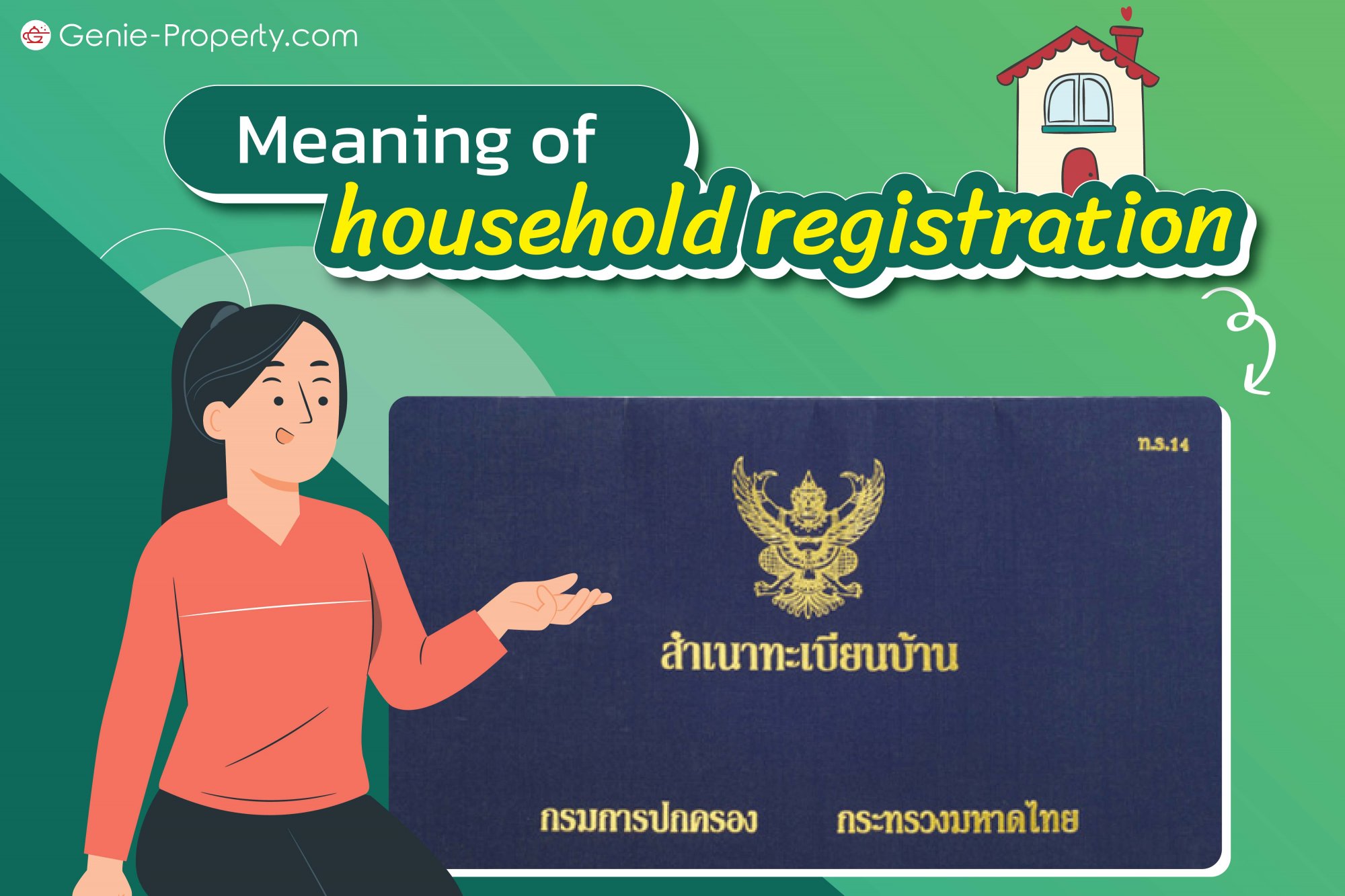
1. The meaning of "ทะเบียนบ้าน" (thabiian baan) in English is "household registration."
Household registration refers to a document that serves as a permanent record of a household. It includes a unique household code and lists the names of all individuals residing in that household. It also indicates who the head of the household is and who the residents are. The household registration contains detailed information about each individual, such as their full name, parents' names, national identification number, date of birth, and more.
The number of residents listed in a household registration can vary but should not exceed the capacity of the dwelling. According to the Public Health Act of 1992 (B.E. 2535), one person is allowed to reside per 3 square meters of living space. However, only the head of the household is entitled to be listed in the household registration. It is important to note that the roles and responsibilities of the head of the household and the owner of the house are different.
- "เจ้าบ้าน" (jâo bâan) refers to the head of the family who is responsible for various matters concerning the household. This can be either the owner or the tenant of the house. In unexpected situations, such as when the landlord goes missing and cannot be traced, the person taking care of the house at that time is considered the temporary head of the household. The responsibilities of the head of the household include:
- Registering births that occur within the household.
- Registering deaths that occur within the household.
- Reporting the arrival or departure of individuals within the household.
- Building or demolishing a house.
- Requesting a house number.
- Demolishing a house.
- "เจ้าของบ้าน" (jâo khǎwng bâan) refers to the rightful owner of the property, whose name appears on the land title deed or the sales contract. The owner has legal and commercial responsibilities, including:
- Having the right to lease, sell, transfer, and own the house and land.
- Being able to pass on the property as an inheritance to descendants.
There are a total of five types of household registrations:
1. "ทะเบียนบ้าน แบบ ท.ร.14" (thábǐan bâan bàep thoo-rá-sip-sii): This registration is used for Thai nationals and foreign individuals with a residence permit.
2. "ทะเบียนบ้าน แบบ ท.ร.13" (thábǐan bâan bàep thoo-rá-sip-sâam): This registration is for listing foreign individuals who enter the country legally but do not meet the requirements for permanent residence.
3. "ทะเบียนบ้านกลาง" (thábǐan bâan klâang): This is a central household registration created by the Director-General of the Department of Provincial Administration to list individuals who cannot be included in regular household registrations.
4. "ทะเบียนบ้านชั่วคราว" (thábǐan bâan châw-khraao): This registration is issued for houses built in public areas without legal permission. It can be used as an official document, and individuals listed in this registration have similar rights as those in regular household registrations.
In this article, Genie will introduce the differences between the yellow-colored "ทะเบียนบ้าน แบบ ท.ร.13" and the blue-colored "ทะเบียนบ้าน แบบ ท.ร.14" registrations, as well as their similarities. Let's move on to the next topic together!
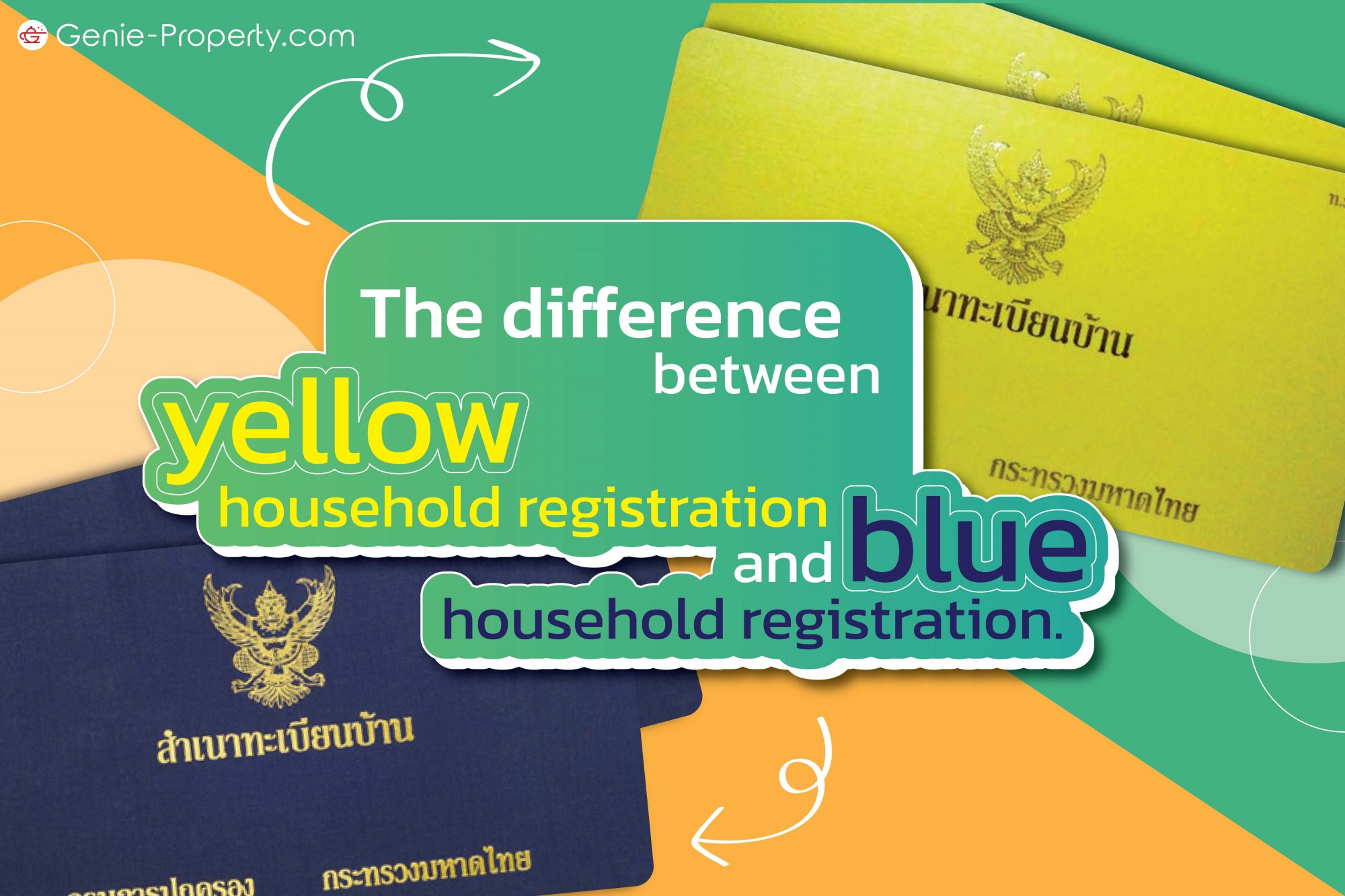
2. The difference between yellow and blue household registration documents.
1. Residential Registration Document Type 13 (Yellow Book)
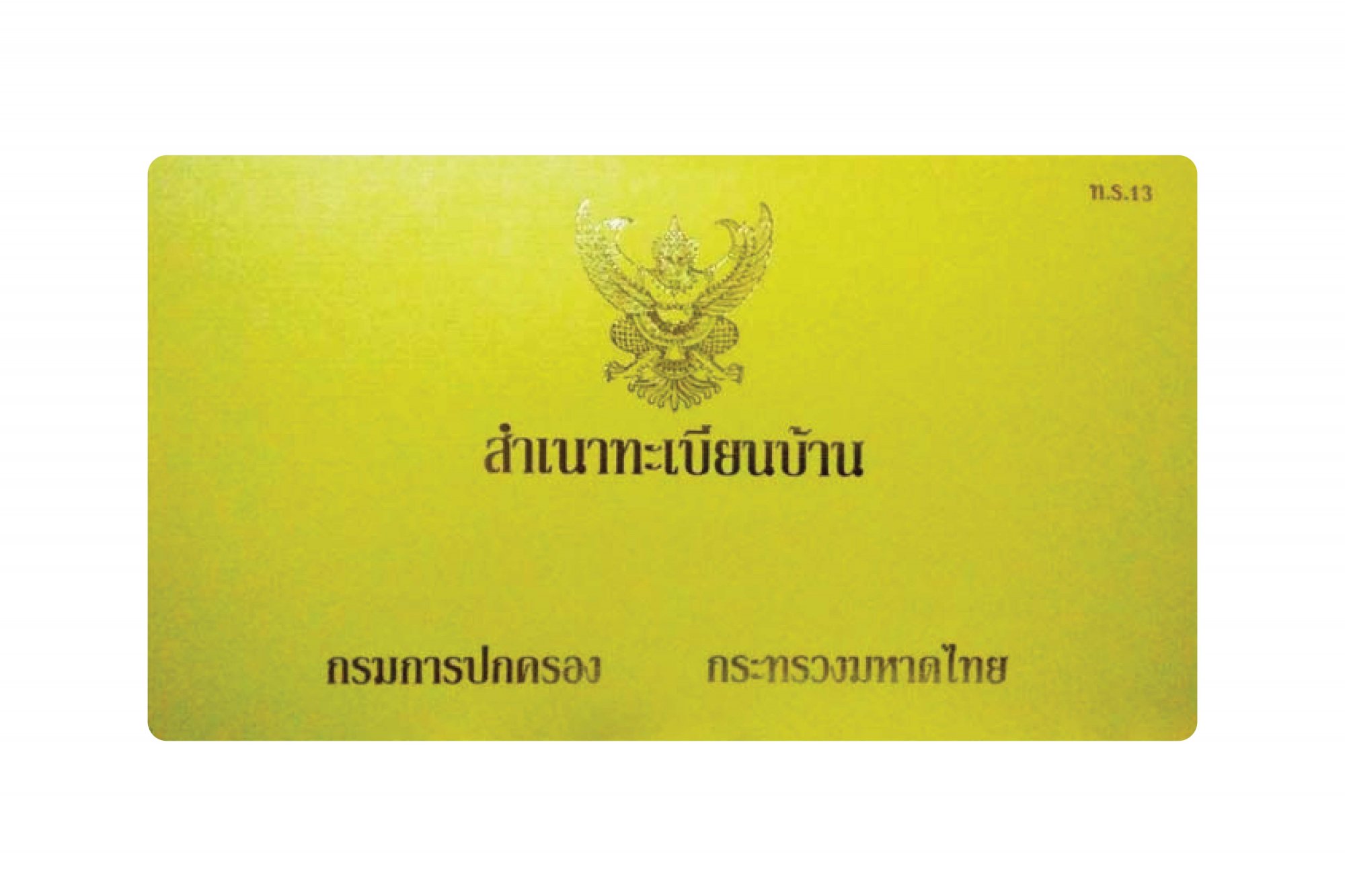
Cr.steemit
The Residential Registration Document Type 13, or the yellow book, is used for foreign residents living in Thailand in compliance with the law and possessing valid passports that have not expired. Foreign residents eligible for the Type 13 registration must meet the following criteria:
- Spouse of a Thai national.
- Purchased real estate and are the registered owner.
If the circumstances do not fall under the aforementioned cases, and there is a necessity or desire to apply for the Type 13 registration, the landlord must initiate the process with the district or sub-district administrative office where the residential registration is located. This involves an interview with the official to explain the reasons for allowing foreign residents to reside in that particular area.
Once the foreign resident has obtained the Type 13 registration, they can engage in various legal activities within Thailand. For example, obtaining a driver's license, entering into contractual agreements, or even applying for permanent residency (PR). In short, the Type 13 registration facilitates the process of obtaining a foreigner's identification documents or a pink ID card quickly and conveniently.
2. Residential Registration Document Type 14 (Blue Book).
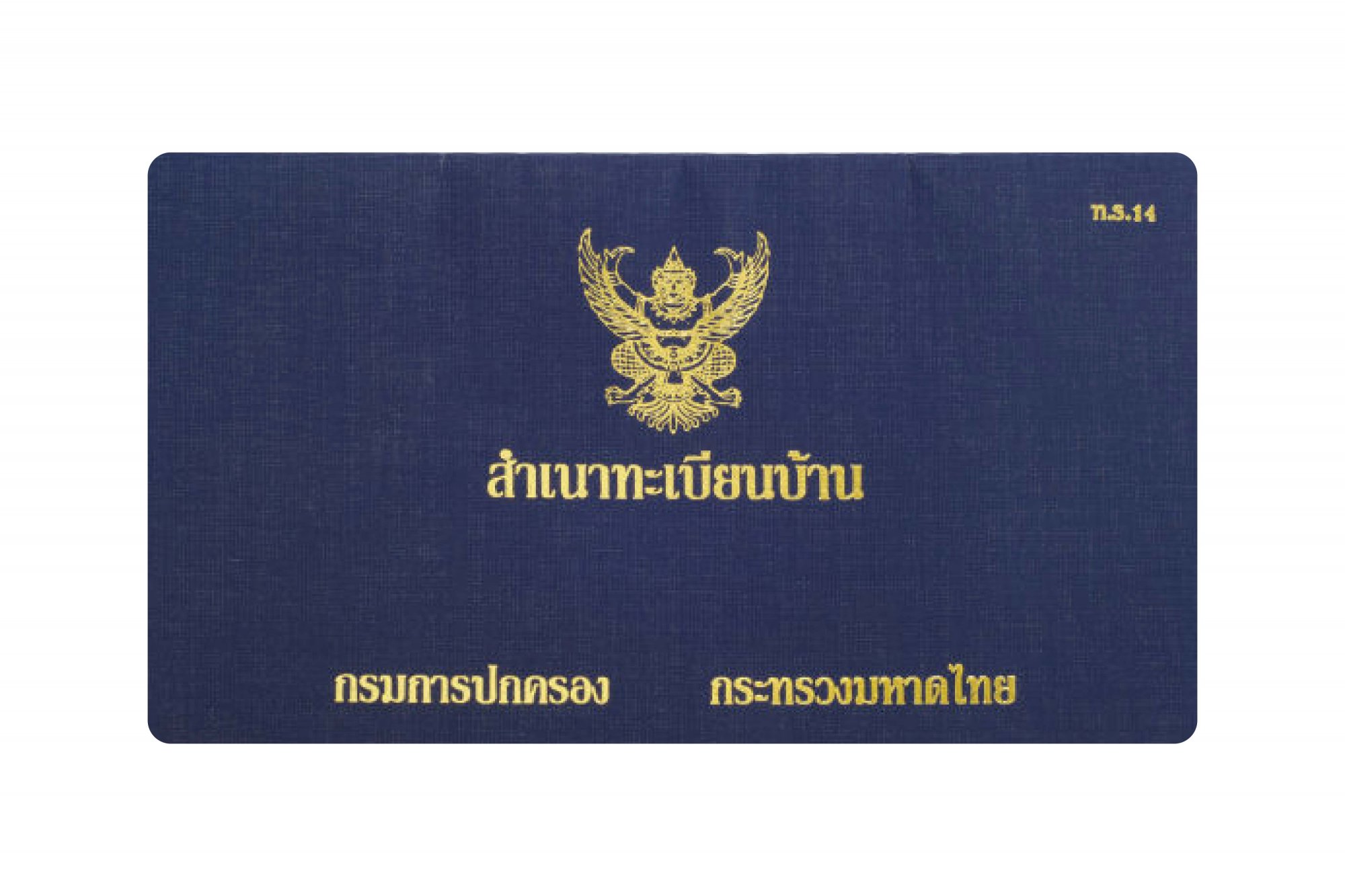
Cr.Kapook
The Type 14 Residential Registration Document, also known as the Blue Book, is used for Thai nationals in general. It is intended for individuals whom we commonly refer to as "household heads" responsible for managing the mentioned house. The "household head" does not necessarily have to be the legal landowner or owner of the house; they can be a tenant or hold any other capacity.
When an event or activity occurs that is relevant to the residents, the "household head" is obligated to report it to the registrar within a 15-day period, unless there is a deceased person, in which case they must inform the authorities within 24 hours.
After we have had our name registered on the household registration for a full year, we will be able to sell our house or condominium that we own without incurring any business taxes. That's the only condition.
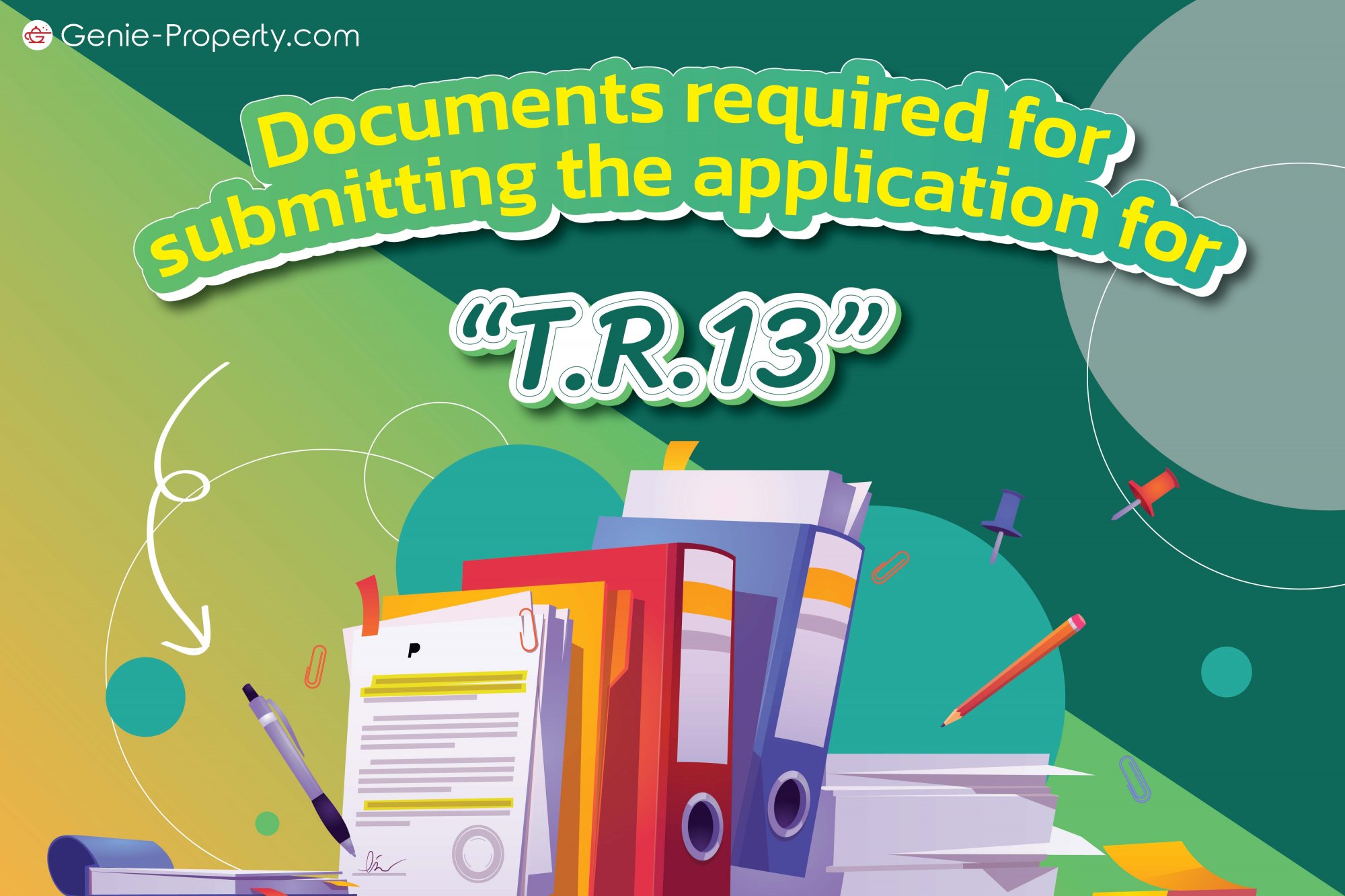
3. The document required for submitting the TM.13 application form is as follows:
1. For foreigners married to Thai nationals:
- Original passport
- Copy of the passport certified by the embassy and translated into Thai, along with certification - by the Thai government office
- Work permit in Thailand (if working in Thailand)
- Marriage certificate
- Birth certificate of children (if applicable)
- 2 passport-sized photos (1.5 inches)
- Original ID card of the homeowner
- Original ID card of the Thai spouse
- Original house registration book of the homeowner
- Copy of the house registration (prepared as a backup)
- At least 2 witnesses with their ID cards (preferably acquainted individuals)
- Both the "homeowner" and the "foreigner" should prepare these documents completely.
**For Thai spouses, they must have their names registered at the same address on the house registration.
2. For foreigners purchasing real estate and holding the title:
- Original passport
- Copy of the passport certified by the embassy and translated into Thai, along with certification - by the Thai government office
- Work permit in Thailand (if working in Thailand)
- TM.14 form in Thai
- Condominium unit ownership certificate and sales agreement (Chanote 23)
- 2 passport-sized photos (1.5 inches)
- At least 2 witnesses with their ID cards (preferably acquainted individuals)
- Other documents (if available), such as driver's license, educational certificates, or Green Card
- Front view photo of the house showing the house number and interior view of the actual residence
It is important to note that in each district or province, there may be additional document requirements for preparing the TM.13 application. It is recommended to contact the district office or provincial governor's office to avoid wasting time.
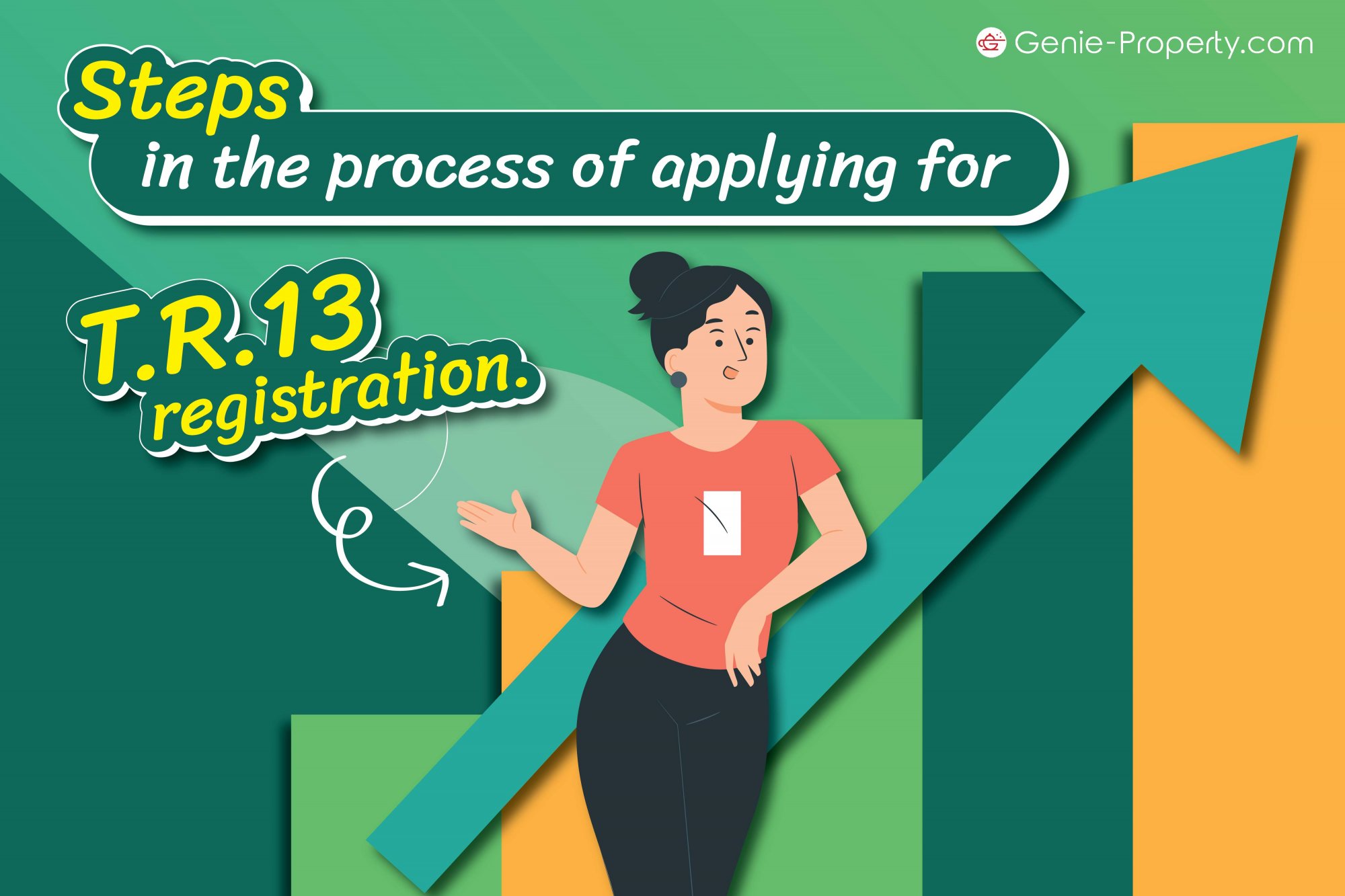
4. The process for submitting the TM.13 application is as follows:
For the steps involved in the process, they can be categorized as follows:
1. Prepare all the required documents and submit them to the officer.
2. The officer will verify the completeness and correctness of the documents. Then, an appointment will be scheduled for an interview with the homeowner and the foreigner who wishes to be listed as a resident, as well as the witnesses (or in some districts, the interviews may be conducted on the same day if the documents and personal witnesses are prepared).
3. Once the interview is completed and there are no issues with the documents, the officer will inform the duration for issuing the yellow house registration book (TM.13) and schedule a day for collection. Alternatively, they may provide a contact number for notification.
The processing time for these steps is approximately 7 working days, but it may vary depending on the specific district or province. In the case of Bangkok, it typically takes around 3 to 5 working days due to the officers' familiarity with the document process.
To access the services or contact relevant authorities, you can:
- Contact the district office in your residential area.
- Contact the local registration office.
- Contact the local municipality office.
That's how the process works. It is designed to make transactions easier for foreigners residing in Thailand who have their house registration. This allows them to engage in various activities such as obtaining a driver's license, opening a bank account, or conducting other transactions more conveniently.
I hope this information clarifies any doubts you may have had. Genie hopes that this article will help you share the knowledge with your friends, relatives, or acquaintances who may need to obtain the TM.13 yellow house registration book.
For further support and encouragement, you can follow and like Genie's team of writers on their Facebook Fanpage mentioned below:
LINE: @genie-property.com
FACEBOOK: Genie-Property.com
EMAIL: sales@genie-property.com
CALL CENTER: 093-232-9888, 064-931-8666
Website: www.genie-property.com

